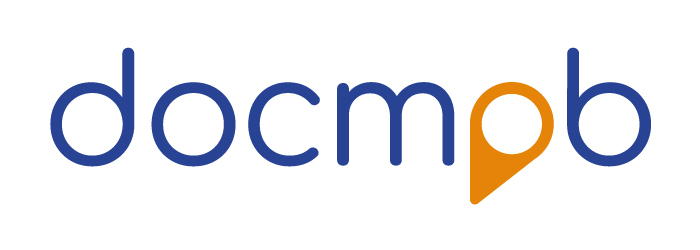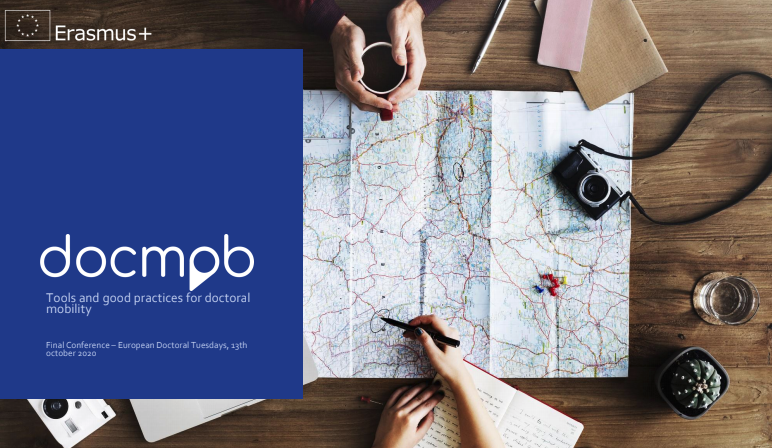The European Doctoral Tuesdays was a series of webinars organised around the thematic of doctoral education and training throughout October 2020.
The second webinar on “DocMob: tools for doctoral mobility” held on October 13th showcased the results of the DocMob project and engaged with more than 100 remote attendees in a discussion around the thematic of PhD mobility in the framework of the Erasmus+ programme and beyond.
Donato Lorubio and Marie-Christine Viry (UL), Jessica Dinsel and Aurélie Bac (UPHF), Liliana Norte and Luisa Capitao (UP), Marta Maciocia (Unina), Bettina Jochum (US), Joachim Wyssling (EUF) and Katarzyna Turon (Eurodoc) presented various aspects of the doctoral mobility challenges and how to overcome them.
What are the challenges around PhD mobility?
The DocMob project looked at how Higher Education Institutions (HEIs) implement and manage PhD mobilities through the Erasmus+ programme, with the aim of improving the doctoral mobilities funding scheme and make it fit for purpose in the new Erasmus programme period (2021-2027).
The findings of the survey conducted in 2019, collecting answers from Erasmus+ partner universities and National Agencies (NAs) are clear:
- Erasmus+ funding is not sufficient to entirely cover the needs of PhD candidates for mobility*. In this light, the respondents also indicated that, in most cases, the HEI used its own funds to support international PhD mobility of their doctoral candidates;
- Erasmus+ is oftentimes used by HEIs to fund 1st and 2nd cycle mobilities and in fewer cases 3rd cycle mobilities. It is to be noted that all kind of Erasmus+ mobility schemes are used for PhD candidates, including study, traineeship, teaching or training mobility funds*.
- Erasmus mobilities are not flexible enough yet to fit the expectations and requirements of the 3rd cycle studies. DocMob partners stressed that the doctoral mobility agreement should include both an educational AND a research component.
The management of the expectations of both the universities (host and home) and the PhD candidates in terms of requirements, rules, fundings and priorities during the mobility is key to ensuring that all will gain from the mobility period. Accompanying and supporting PhD candidates in their path to mobility can also be one of the key success factors. In this regard, the University of Porto highlighted the already available tools and network such as Euraxess portal or local contact points, where PhD candidates can find relevant information and support.
How is DocMob improving Erasmus+ mobility for PhD candidates?
DocMob proposes a new approach to PhD mobility. An approach that takes into account both the educational component, skills and research component of the mobility programme. Where the current learning agreement templates fail to capture the essence of the work of a PhD candidate, considered both as a student (education & training) and researcher, the new proposed DocMob learning agreement templates tend to fill this gap.
Learning Agreement template (before) I Learning Agreement template (during/after) I Example of a PhD LA
While the consortium has been testing these templates, which to a large extent, tend to be fit for purpose, the European Commission has been asked to take DocMob policy recommendations into account when designing the new Erasmus programme.
Handbook of good practices and recommendations
Last but not least, the consortium has investigated alternative funding opportunities for PhD mobility. The results of this research are freely available and tend to propose additional funding schemes, either country or HEI specific, to enable doctoral mobility and international knowledge transfer. It is important to underline that having a dedicated mobility strand for doctoral candidates in the Erasmus+ would allow to better take into account their situation/needs.
*DocMob consortium, Handbook of good practices and recommendations, 2020, p.12
*Idem

